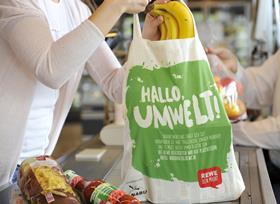
A month into Russia's war in Ukraine, the EU Commission has highlighted the need to tackle rising food prices, with plans to enhance global food security and to support farmers and consumers in the EU.
Following a surge in global commodity prices, the aim is reportedly to make EU agriculture and food supply chains more resilient and sustainable, although critics regret the concessions made on areas such as biodiversity.
Commissioner for Agriculture Janusz Wojciechowski said that 'the transition to sustainable agriculture, as envisaged in the Green Deal and Farm to Fork, is our only path to food security'.
'We must also ensure that our food system is resilient to external shocks, like the one we are now experiencing,' he went on. 'That is why the Farm to Fork Strategy is an important part of our response. It sets the path to reducing our dependence on inputs like fertilisers, without undermining productivity.
'This will require a greater use of knowledge-sharing and innovation in areas like precision farming, organic farming, nutrient management and agro-ecology, which must be facilitated through CAP Strategic Plans.'
The Commission, he said, would support Member States using funding to boost sustainable biogas production, improve energy efficiency, foster bioeconomy solutions or convert to organic farming.
IFOAM Organics Europe welcomed the European Parliament’s support for the Farm to Fork strategy.
President Jan Plagge commented: “The Farm to Fork strategy remains, now more than ever, the relevant policy direction to adapt our farming system to current and future crises. The war against Ukraine raises legitimate concerns over price increases and availability of certain agriculture inputs, namely cereals for animal feed and synthetic fertilisers. It also forces us to re-think our food production system to make it more independent from external inputs, less input intensive and more resilient.
'Practical agronomic solutions already exist to achieve these goals, while ensuring both food security for all Europeans and beyond, as well as profitability for farmers. Incentivising and helping farmers to upscale existing agro-ecological solutions should be policymakers’ priority. With support of CAP and the EU Farm to Fork strategy, it is possible to produce healthy food in sufficient quantity without synthetic pesticides and fertilisers, while preserving biodiversity, storing carbon in soils and making our food production more resilient to the increasing impacts of climate change.”
IFOAM Organics Europe stated that, although the EU Parliament had managed to save the Farm to Fork strategy’s integrity, concessions on key elements concerning biodiversity were regrettable.



